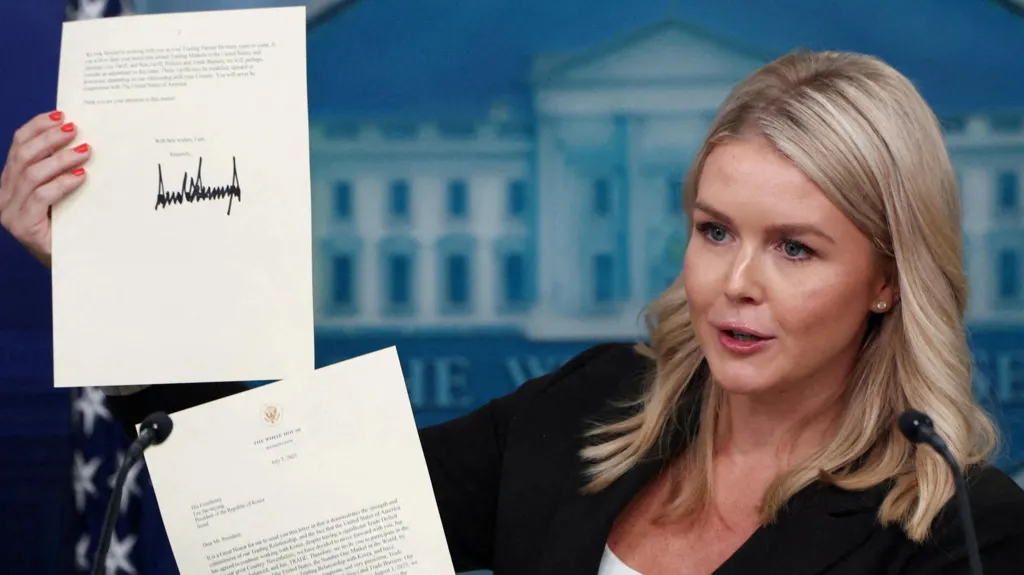US Delays Tariffs, Signaling Continued Trade Negotiations
In a significant development for international trade, President Donald Trump has announced a delay in the implementation of higher tariffs on goods from several countries, while simultaneously issuing letters detailing new tax rates for others. This move comes as a 90-day pause on some of the administration’s more aggressive import taxes was set to expire this week.
The president had previously threatened a 25% tariff on products imported from Japan and South Korea, with these measures initially slated to take effect on July 9th. However, the White House cited a desire to pursue trade deals as the reason for the suspension. The new deadline for these potential tariffs has been set for August 1st, though President Trump himself described this timeline as “firm, but not 100% firm,” indicating a willingness to engage in further discussions and potentially alter the course based on new proposals.
Economists, such as Adam Ahmad Samdin from Oxford Economics, view this extension as a predictable step, given the intricate and time-consuming nature of finalizing trade agreements. Samdin noted that while Vietnam recently finalized an agreement, it primarily served as a broad framework to expedite talks rather than a comprehensive deal.
Further complicating the trade landscape, President Trump shared letters with leaders of 14 countries, outlining impending tariffs. These rates, largely consistent with those proposed in April, signal the administration’s ongoing strategy of using tariffs as a tool in trade negotiations. Investment strategist Vasu Menon of OCBC Bank suggested that these actions reflect Trump’s negotiation tactics, offering a glimmer of hope to investors who perceive these as strategic maneuvers rather than definitive threats.
The stated rationale behind these tariffs, according to President Trump, is to shield American businesses from foreign competition and stimulate domestic manufacturing and job growth. However, economists caution that such measures could lead to increased prices for consumers in the US and a potential reduction in overall trade volume. This sentiment was echoed in the market, with major US share indexes experiencing a dip, and Toyota’s US-listed shares falling by 4% following the announcements.
Japan, a major supplier of goods to the US, with over $148 billion in exports last year, remains a key focus. South Korea also ranked among the top 10 suppliers. The US has recently secured trade agreements with the UK and Vietnam, and is reportedly close to a deal with India. Talks with the European Union are also ongoing, with indications that the bloc might not receive a tariff letter, despite previous threats of a 50% tax from President Trump.
Adding to the complexity, specific tariff rates have been announced for various nations: Myanmar and Laos face a 40% tariff, Thailand and Cambodia 36%, Serbia and Bangladesh 35%, Indonesia 32%, South Africa 30%, and Malaysia and Tunisia 25%. The US has also imposed tariffs on steel and automotive sectors, citing national security, and has threatened increases on pharmaceuticals and lumber.
Japanese Prime Minister Shigeru Ishiba expressed regret over the further tariff increases but affirmed Japan’s commitment to ongoing discussions to reach mutually beneficial agreements. South Korea plans to leverage the extended deadline to intensify its dialogue with the US, while Thailand’s finance minister remains optimistic about securing a comparable tariff rate.
White House Press Secretary Karoline Leavitt emphasized that more letters might be issued, dismissing suggestions that the shifting deadlines would diminish the impact of Trump’s threats. She highlighted that world leaders are consistently engaging with the president to seek favorable trade deals.
Treasury Secretary Scott Bessent anticipates a period of intense negotiation, noting a recent influx of new offers and proposals from various countries eager to finalize trade terms. This follows President Trump’s initial justification of tariffs as “reciprocal” measures against perceived unfair trade practices by other nations.
‘Busy Couple of Days’ Expected in Trade Talks
Secretary Bessent anticipates a dynamic period of negotiations, characterized by a flurry of new proposals from countries seeking to strike favorable trade deals with the US. This follows President Trump’s initial assertion that tariffs were a necessary response to what he termed unfair trade practices by global partners.
The administration’s multi-faceted approach to trade, including sector-specific tariffs on steel and automobiles citing national security, has created a complex environment for international negotiations. The automotive sector, in particular, has been a significant point of contention in discussions with Japan and South Korea.

